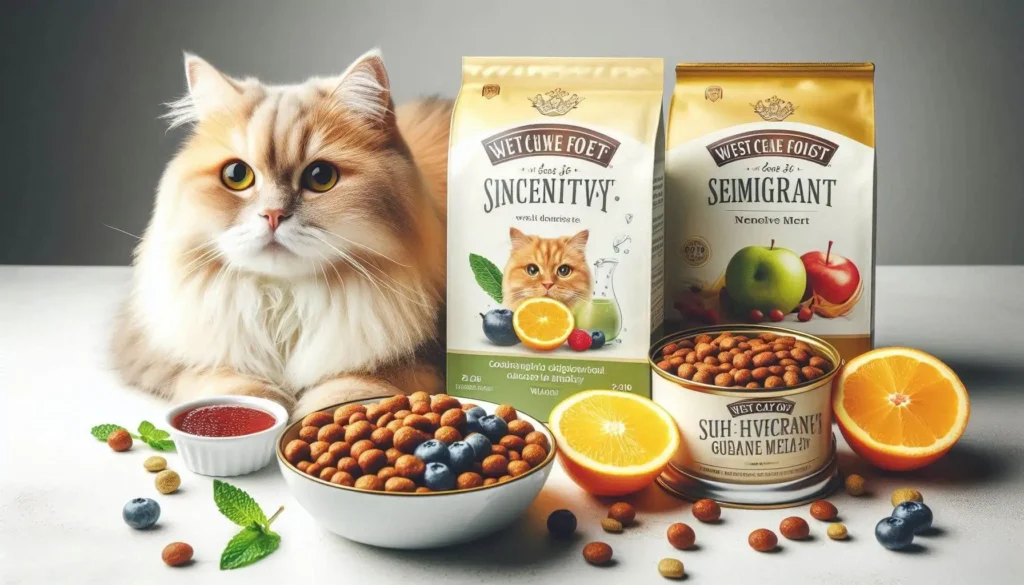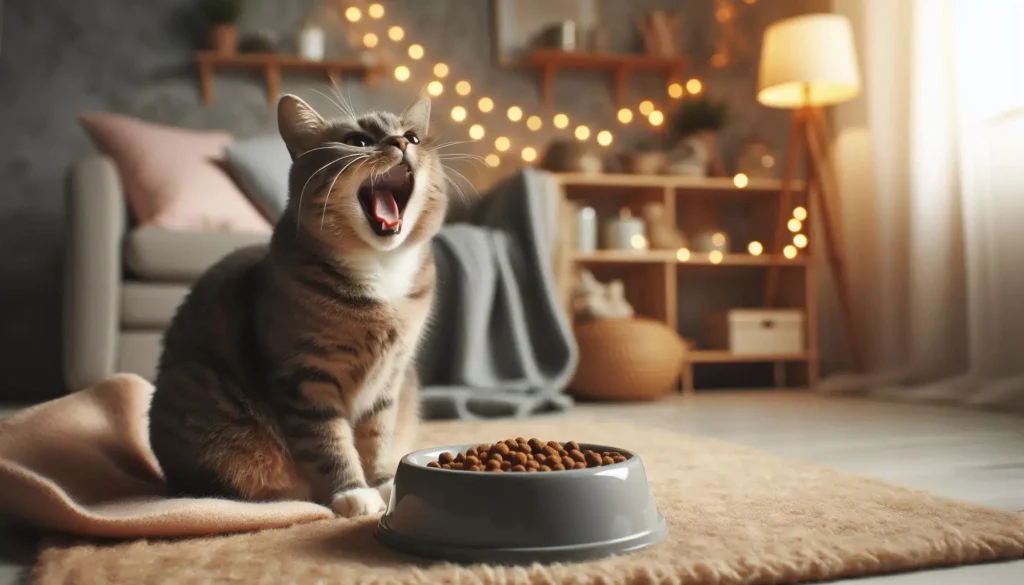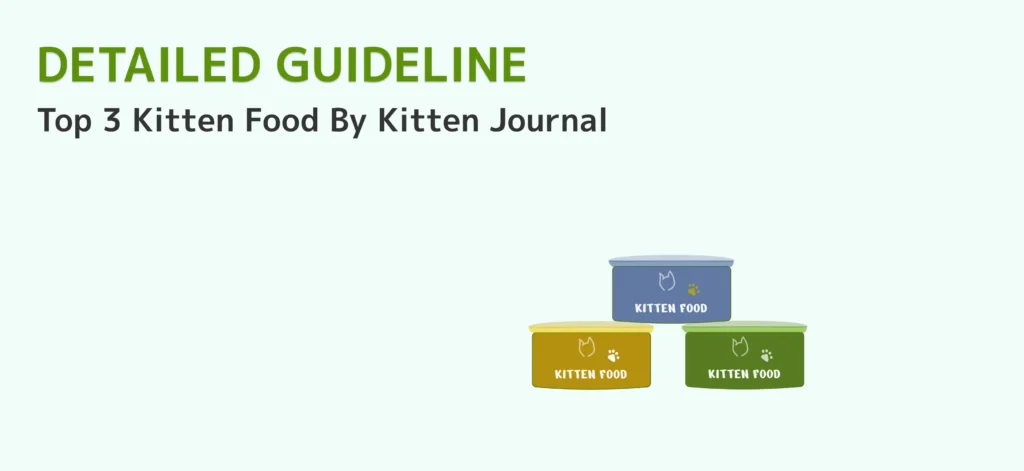What to Feed Cats When Out of Cat Food: 5 Lifesaving Meals
We independently research, review, and recommend the best products—If you buy something through our links, we may earn an affiliate commission.
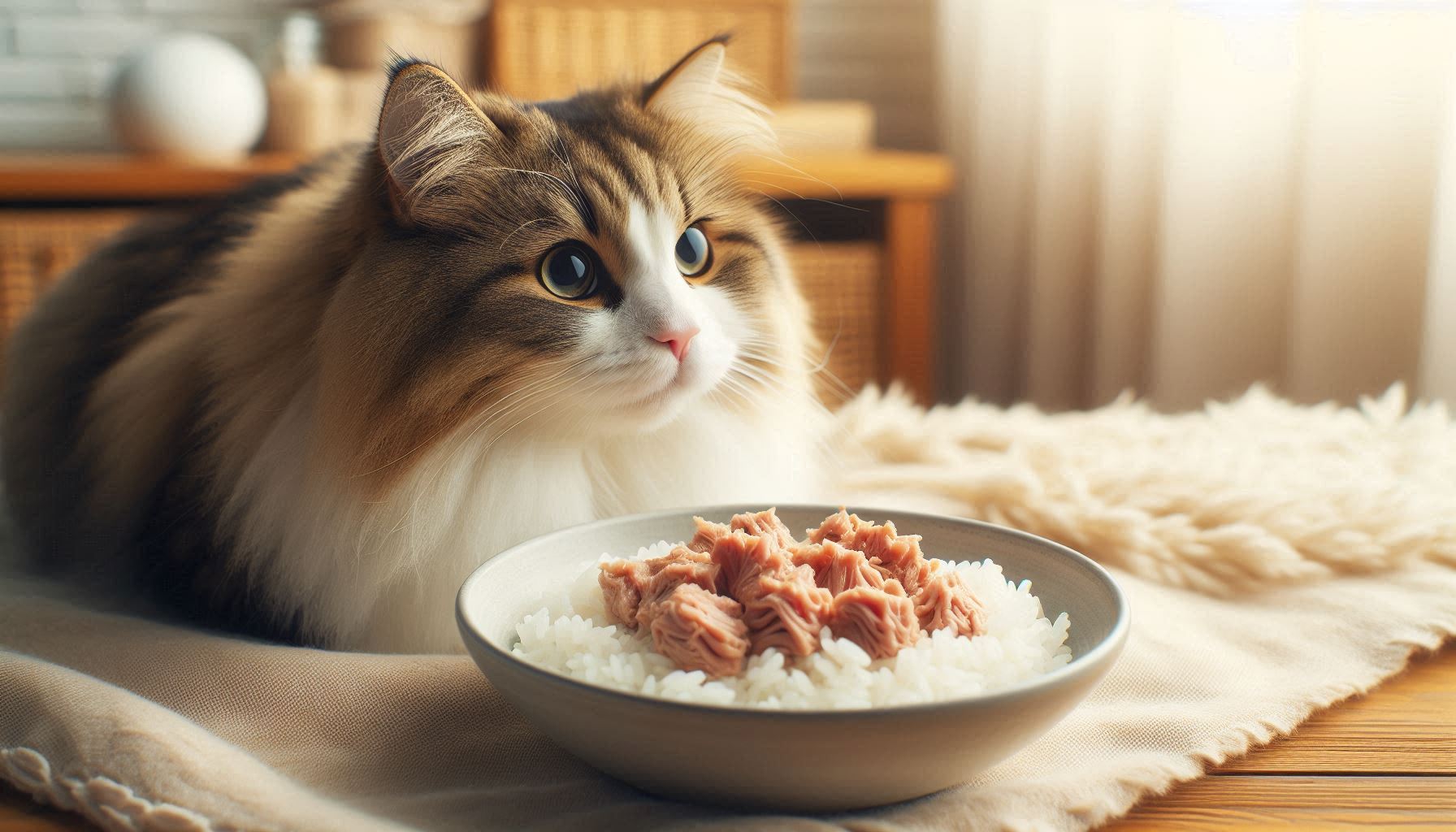
What to feed cats when out of cat food?
The food listed below covers mostly everything your cat will need in a meal. Choose one type of food from each category and make a full, balanced meal for your cat. The food quantity is given based on the following:
– Your cats get 2 meals per day (Total of 200 calories).
– Each meal has a composition of 60% protein, 30% fat, 10% carbohydrates, and some vitamins and minerals (100 calories).
60% Protein
Example: Cooked Chicken or Turkey, Cooked Fish (Salmon, Tuna), Cooked Beef (0.7-1.06 oz per meal).
30% Fats
Cooked egg (scrambled or boiled) or 1/4 teaspoon olive oil per meal. A small amount can be drizzled over your cat’s food occasionally to add healthy fats to their diet.
10% Carbohydrates
Cooked brown rice, quinoa, or oatmeal: (0.35-0.53 oz per meal). These can be a source of fiber for cats. Make sure it is cooked without any added sugar, salt, or flavorings.
Vitamins and Minerals
Cooked vegetables (0.22-0.35 oz per meal): Carrots, peas, and green beans, for example, are low in calories and rich in fiber, making them a great addition to a cat’s meal, especially for weight management.
Water (240-320 ml per day)
In situations where you find yourself temporarily without cat food, it’s important to remember that your cats also need access to water to stay hydrated. Ensure your cat has access to clean, fresh water throughout the night. Hydration is crucial for your cat’s health, especially during periods when their food may not provide sufficient moisture.
Homemade Cat Meals: Easy Recipes to Try
Here are some simple, balanced recipes you can prepare for your cat when you’re out of cat food. Each recipe provides a healthy mix of protein, fats, carbohydrates, and essential vitamins and minerals to keep your cat nourished.
1. Chicken & Rice Meal
- Protein: 1 oz cooked, boneless, skinless chicken
- Fat: 1/4 scrambled egg
- Carbohydrates: 0.5 oz cooked brown rice
- Vitamins/Minerals: 0.25 oz cooked peas
- Cook the chicken without seasoning until it’s fully done and cut it into small, manageable pieces for your cat.
- Lightly scramble the egg and mix with the chicken.
- Add the cooked brown rice and peas.
- Mix all ingredients and let cool before serving.
2. Turkey & Quinoa Delight
- Protein: 1 oz cooked, boneless turkey
- Fat: 1/4 teaspoon olive oil
- Carbohydrates: 0.5 oz cooked quinoa
- Vitamins/Minerals: 0.25 oz cooked carrots
- Cook the turkey thoroughly and cut into small chunks.
- Drizzle the olive oil over the turkey.
- Add cooked quinoa and steamed carrots to the mix.
- Let the meal cool down to room temperature before serving.
3. Beef & Oatmeal Bowl
- Protein: 1 oz cooked lean beef
- Fat: 1/4 teaspoon olive oil
- Carbohydrates: 0.5 oz cooked oatmeal (plain)
- Vitamins/Minerals: 0.25 oz cooked green beans
- Cook lean beef thoroughly, ensuring no fat or seasoning is added.
- Add a drizzle of olive oil over the beef.
- Mix the cooked oatmeal and green beans with the beef.
- Let cool before serving.
4. Salmon & Carrot Feast
- Protein: 1 oz. cooked salmon
- Fat: 1/4 boiled egg
- Carbohydrates: 0.5 oz cooked quinoa
- Vitamins/Minerals: 0.25 oz steamed carrots
- Bake or steam the salmon until fully cooked, and remove any bones.
- Boil an egg and chop up 1/4 of it.
- Mix in the cooked quinoa and steamed carrots with the salmon and egg.
- Let the mixture cool before serving.
5. Tuna & Pea Medley
- Protein: 1 oz cooked tuna (water-packed)
- Fat: 1/4 teaspoon olive oil
- Carbohydrates: 0.5 oz cooked brown rice
- Vitamins/Minerals: 0.25 oz cooked peas
- Drain and cook the tuna if using canned, and ensure it’s unsalted.
- Drizzle olive oil over the tuna.
- Add cooked brown rice and peas to the tuna.
- Let it cool before serving to your cat.
How to serve your cats home-cooked food?
Kittens prefer their food to be warm. Just like baby milk, check if the food is hot by putting some on your wrist. If it’s still too hot, it might burn the kitten’s inside as well. As for adult cats, they don’t seem to have a preference regarding food temperature. However, some won’t touch a meal that is too cold. That’s why it’s better to serve food slightly warm.
Important Notes:
- These meals are for temporary feeding and should not replace a complete, balanced diet.
- Ensure all foods are unseasoned and free of harmful ingredients such as onions, garlic, and excessive salt.
- Consult with a vet for long-term dietary changes or if you’re unsure about certain ingredients.
What not to feed them?
When preparing meals for your cat, it’s crucial to avoid certain human foods that can be harmful or toxic. Understanding which foods are dangerous can help you prevent potential health issues and ensure your cat remains safe and healthy. In this section, we’ll highlight key foods to avoid and explain why they are harmful. For more information on safe and unsafe foods for cats, click here.
- Dairy Products
- Avocado
- Chocolate
- Onions and Garlic
- Grapes and Raisins
- Alcohol
- Xylitol
- Bones
- Raw Eggs
- Caffeine
- Fat Trimmings and Raw Meat
- Citrus and Citrus Oil Extract
- Dog Food
Conclusion
When faced with a shortage of cat food, it’s crucial to provide safe alternatives for your feline companion. While some human foods can serve as temporary solutions, it’s essential to offer them in moderation and avoid harmful options. Remember, if your cat has special dietary needs or health problems, consult with your veterinarian before serving any home food to ensure the best care for your cat’s health and well-being
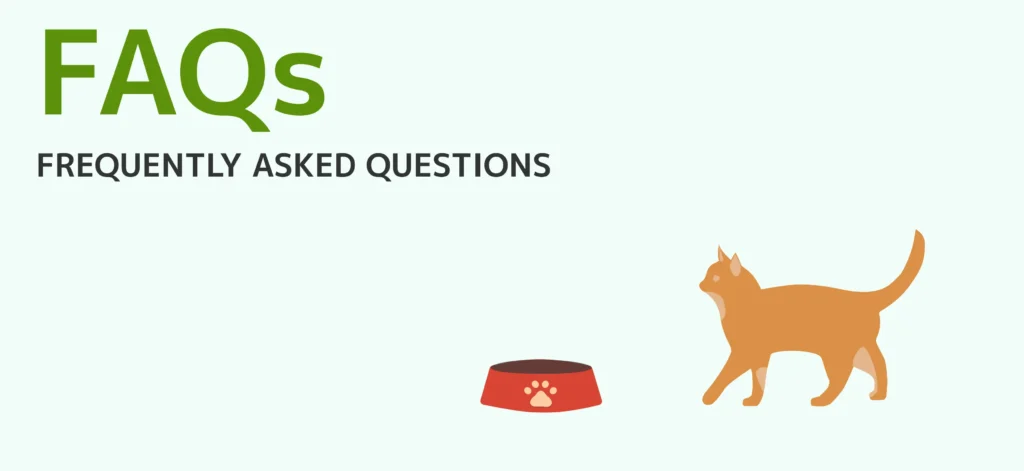
Frequently Asked Questions
What if I forgot to feed my cat?
Here’s how to handle the situation if your cat is acting irritated or hungry and you’ve forgotten to feed them: Offer some nice Food as an Apology: When you discover you haven’t fed your cat in a while, offer them a meal or snack. They will be grateful for the effort.
How long can a cat live without food?
While cats are known for their resilience, they cannot go without food for extended periods. On average, a cat can survive without food for approximately 3 to 7 days. However, this timeline can vary depending on factors such as the cat’s age, health status, and access to water. It’s crucial to monitor your cat closely and seek veterinary attention if they refuse to eat for more than 24 hours, as prolonged fasting can lead to serious health complications.
